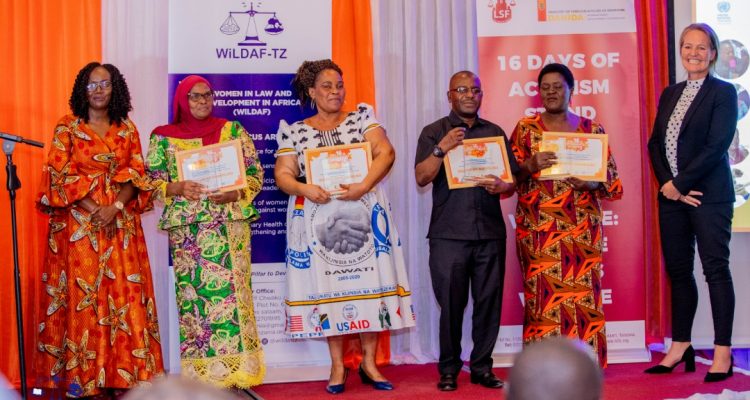
16 Champions of Change 2020 – Ant GBV Awards
WiLDAF and MKUKI Coalition have prepared GBV prevention and response innovative award day to recognize and honour innovation, creativity and efforts of extraordinary individuals, organizations and communities who have taken tremendous actions to address GBV, this includes prevention and responses to cases of violence.
This event bring together participants from across the country, either as awardees or stakeholders of the fight against GBV.
It is high time to celebrate the small victories that have been achieved rather than to continue with the dutiful way of commemorating these days by tears and sadness.
A lot has been done by the local community and it is time to share their songs of victory. In this event, 16 unsung heroes will be presented and honored.
ROSE NJILO
Survived different forms of abuse including marriage at a very young age to become leading activist in the maasai communities. She works to transform culture that perpetuate violence and empower fellow maasai women and girls to actively participate in social-economic activities.
RHOBI SAMWELI
Rhobi has dedicated her life to saving girls from female genital mutilation, child marriage and all forms of violence. She was mutilated against her will, as a young girl, and nearly bled to death in Serengeti and Butiama Districts, Mara Region.
CHRISTINA MARWA
She laid down her tools, as a “ghariba” female genital mutilation (FGM) cutter, five years ago. She joined Hope for Girls and Women in Tanzania, to create awareness in communities in Serengeti District in Mara region, about the harmful effects of FGM.
SHEIKH ALI MOHAMMED ALI
Seven years ago, he started moving from mosque to mosque, Madrassa to Madrassa, village to village, funeral gatherings, wedding gatherings, open village meetings, and youth corners preaching that GBV is against religious teachings and later on together with other 11 faith leaders he managed to voluntarily set up the Chake Chake District Faith Leaders GBV Action Group in Zanzibar.
JANETH MAWINZA
Growing up in a community that undermined women’s rights, shaped her desire to work intensely in the fight against gender-based violence. She currently works with local government and community groups and frontline responders in Dar es Salaam, to build women and girls an urgency to protect themselves against sexual harassment.
RAHABU KENNEDY
A sexual reproductive health and rights advocate, and a radio presenter in Kahama District- Shinyanga. Running a radio programs on teenage pregnancy, Gender-Based Violence, challenging beliefs that men in some way, have the right to beat women, and that it is a woman’s fault , life skill and income generation; encouraging girls to remain focused on their education.
JOYCE KIRIA
Joyce kiria, Founder of WANAWAKE LIVE TV, a survivor of Gender Based Violence, set up the TV as a tool to raise women voices, and for them to fight for the rights including cases of violence against women and girls and importantly, provides a platform for communities to positively debate persistent gender and social norms that continue to devalue women and girls with a view to setting up community structures that support equality and equity of both men and women.
KALA JEREMIAH
He is a well-known Hip Hop artist who is driving change through his music and his powerful lyrics to his huge followership of over 1 million followers on Instagram. He directly touches on social issues, and inequalities, including the rights of people living with disabilities, and the challenges faced by youth and children living in poverty.
DR. KATANZA SIMWANZA
He invests his own time in activities that call for and to GBV and harmful practices, delivering sexual and reproductive health and rights education to both in and out of school, young people.
MAIMUNA KANYAMALA
She is a feminist and activist with believe that when women are economically empowered, they have more agency to protect themselves and gender-based violence and therefore, she has partnered with International Feminist groups from Ireland and Canada to build a global solidarity against Gender-Based Violence.
MR. THOMAS MPONDA
He is the chairperson of the Tanzania Albinism Society and a promoter of the rights of people with disabilities. Like many children with albinism growing up in Tanzania, Thomas was made to suffer some sort of punishment. The violence and abuse he suffering was inexcusable, it could have been prevented. He, however, was determined, he wanted change and he realized that this change needed to begin in his community.
MR. SELEMANI
A leader of the Kipunguni Paralegal Centre, who is fighting to end Female Genital Mutilation- FGM. Recognizing that it is not only a women’s rights but also an economic issue, he has come up with a new, sustainable, income-generating opportunities for women who previously made a living.
DR. JUDITH ODUNGA
A former National Coordinator of WiLDAF Tanzania, one of the pioneers of the 16 Days of Activism. WiLDAF has been coordinating these National Campaigns in Tanzania for more than 20 years. The force that WiLDAF has become today evidences her expertise in building coalitions.
JOHN MYOLA
He is the Executive Director of Agape AIDS Control Programme in Shinyanga Region that is campaigning to end child marriage. He’s also the founder of Agape Knowledge Open School. John recognizes girls who have been rescued from child marriage or who have become pregnant at an early age must be given a second chance to realize their potential
HAPPINESS ELIUFOO
She was part of the team that established the Police Gender and Children Desk in Hai District Kilimanjaro. She works with communities to raise awareness about harmful practices including Female Genital Mutilation, she builds trusts, to encourage survivors to break the silence and to hold the perpetrators to account.
HON. ZAINAB TELACK
The Regional Commissioner of Shinyanga, deservedly has the reputation of a bold leader. She works with the National and local government and organizations in strong advocate and protecting women and girls rights –as evidenced by her directives to councils that they should allocate money in their budget to ensure girls can buy sanitary pads.
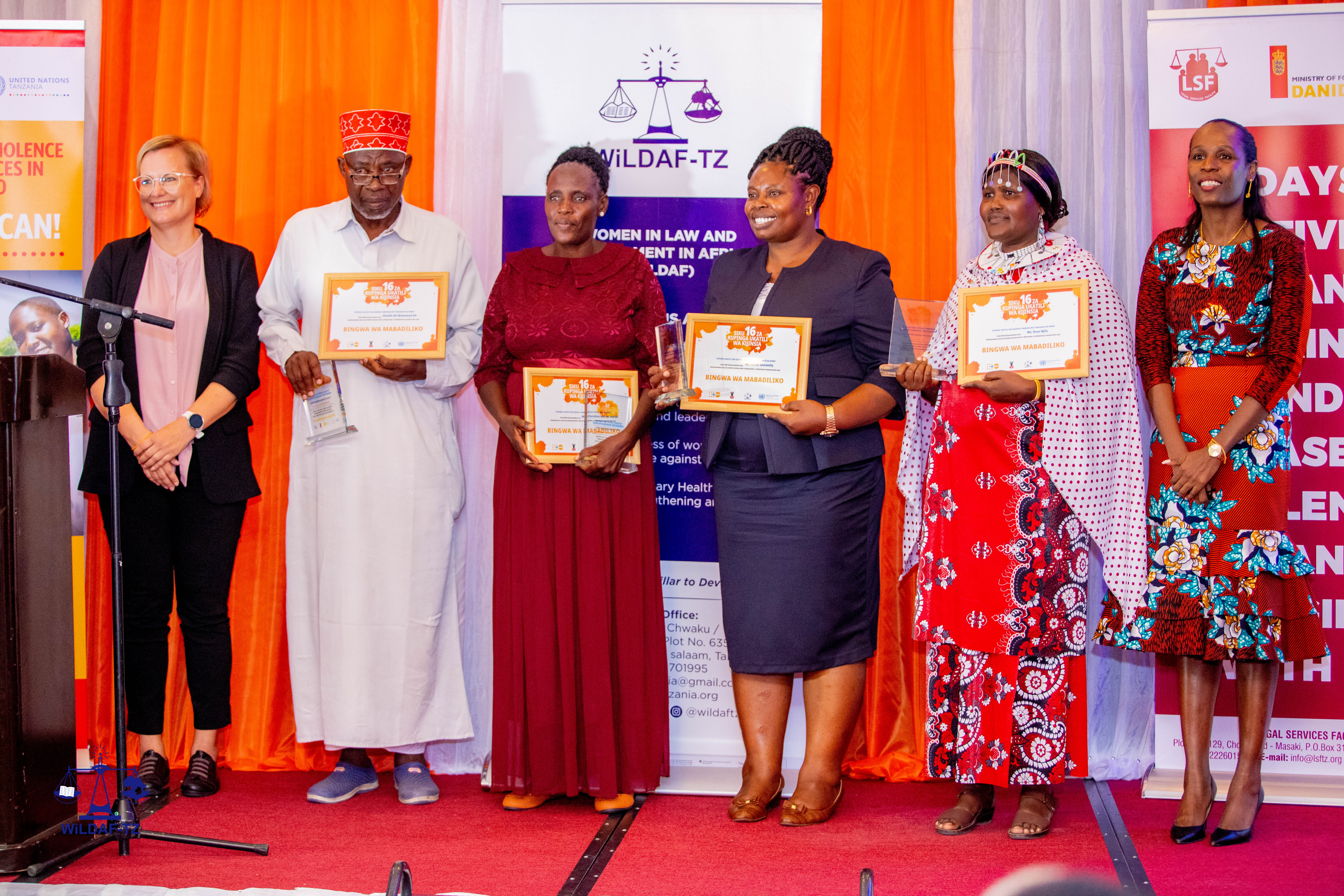
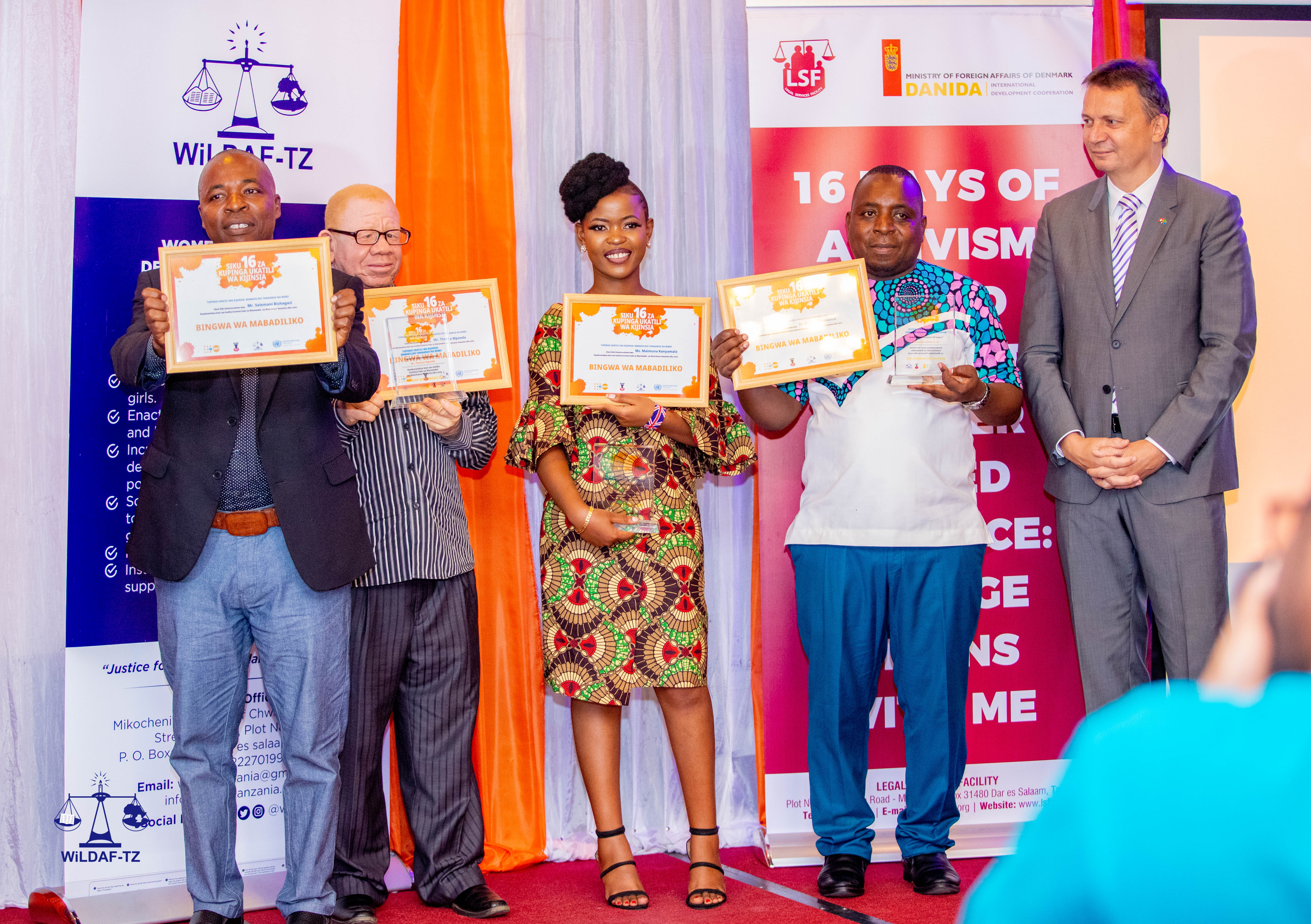
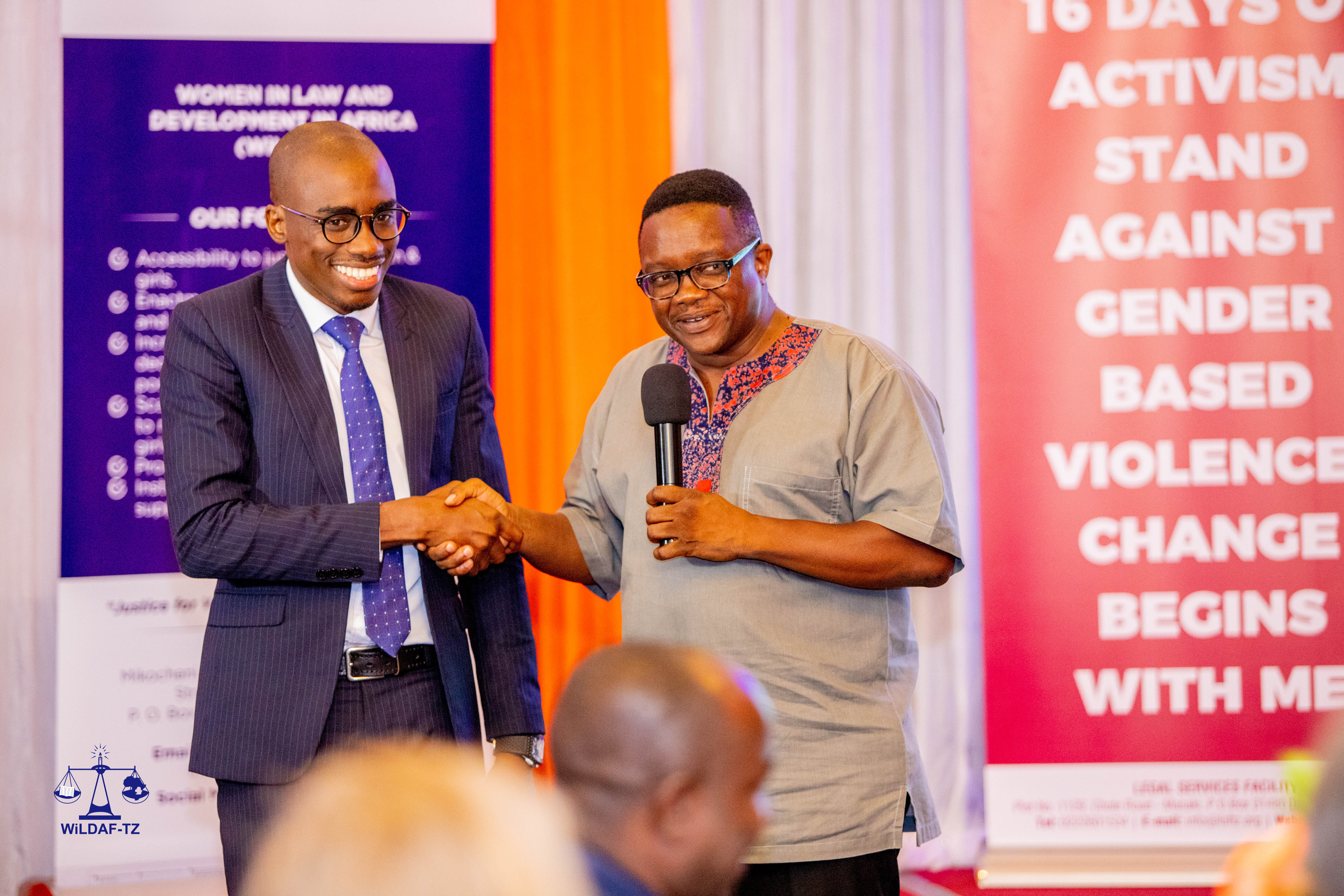

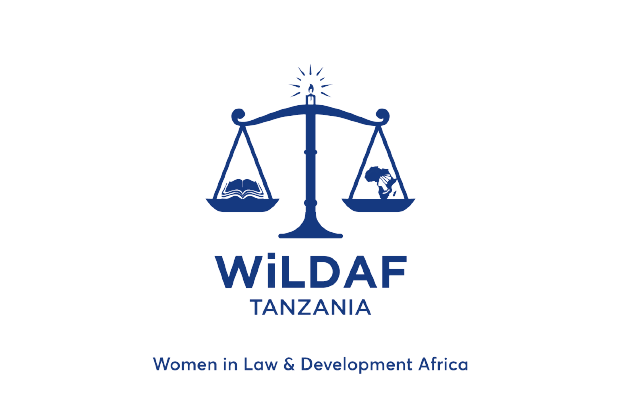
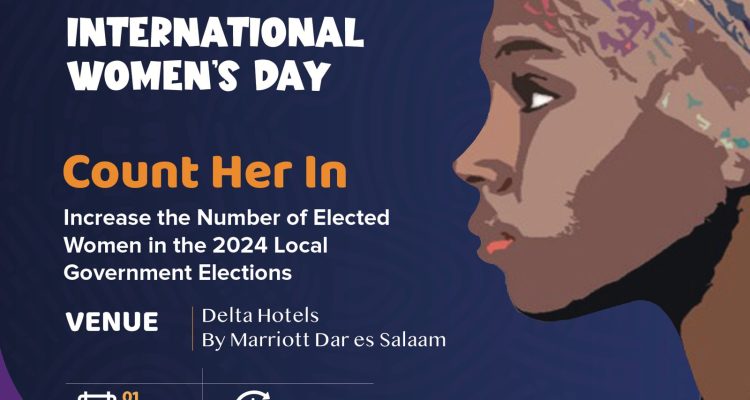
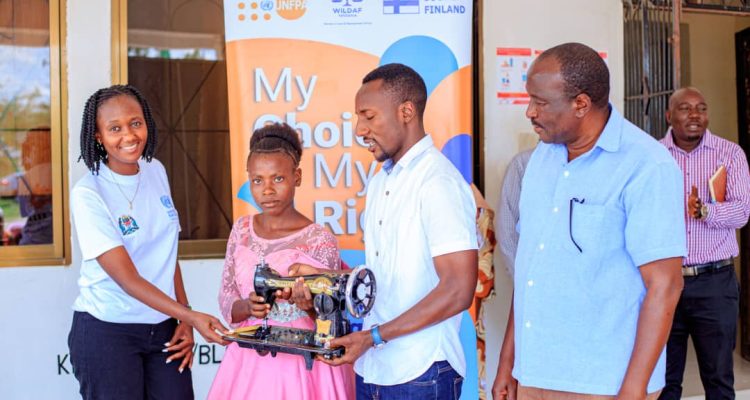
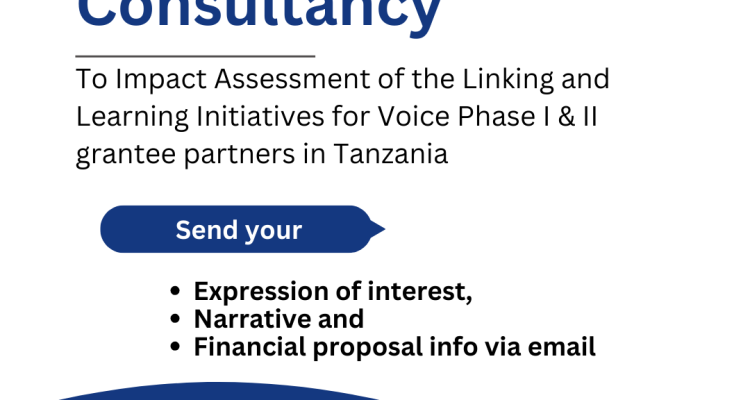
This Post Has 0 Comments